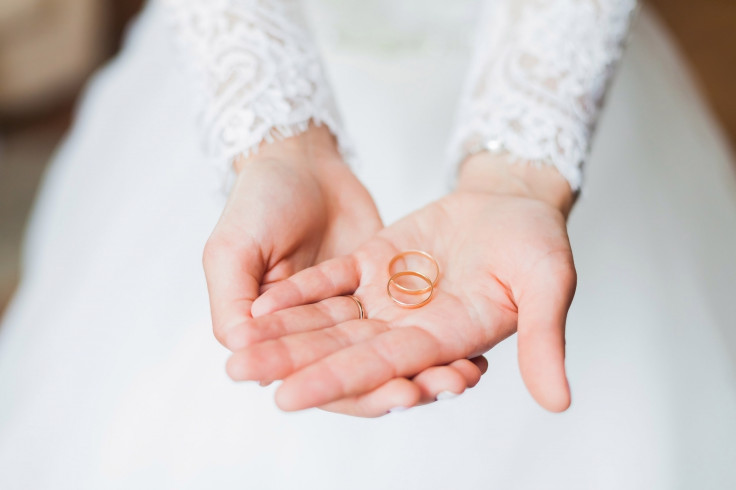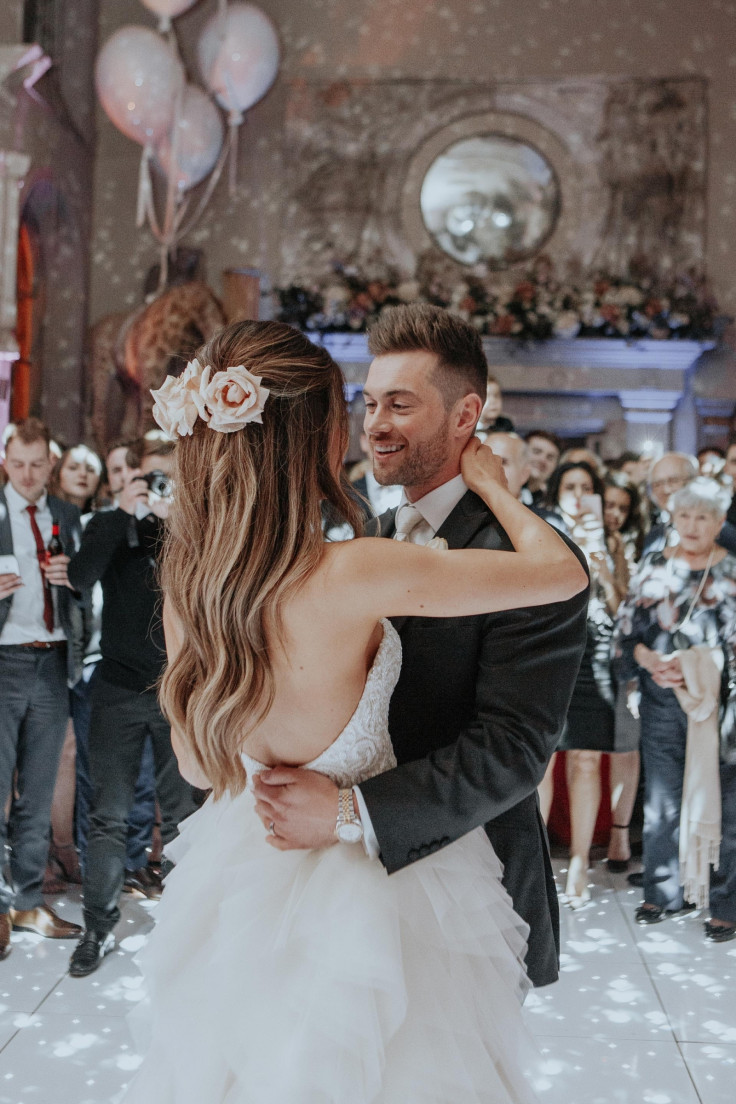'A lot of men are angered by my choice': Meet the grooms who took their wives' surnames

KEY POINTS
- One in ten millennial men take a double-barrelled surname.
- Men tell IBTimes UK why they took their wife's name, went for a double-barrel or combined the two.
While many of marriage's fundamental elements have evolved over the years – the freedom to separate, the legalisation of same-sex marriage in numerous countries and prenuptual agreements –one thing that has been slow to evolve is the changing of surnames in heterosexual unions.
But things are beginning to change, with a number of men deciding to take on their wives' surnames in some form.
The marital tradition of women dropping their maiden names has an interesting history. Hereditary surnames were imported by the French in the 14th century and were only used for men at the time. While males carried on their familial names, married women remained nameless – a representation of how they were their husband's possession, according to BBC.
A century later society became increasingly aware of religious scripture's stress on the unity of marriage. Married women were thought to become one entity with their husbands and this began a tradition of shared names.
While this tradition is still strong – a YouGov poll last year revealed 61% of men and 59% of women believe a bride should take their husband's last name – there is an increasing number of couples turning tide.
One in ten grooms 18-34 now take their wives' names through a double-barrel surname according to a survey – a trend even inspiring celebrity couples to share names from Zoe and Marco Perego Saldana to Aaron and Samantha Taylor-Johnson.
Rachael Robnett, a researcher at the University of Nevada, recently surveyed people in the US and UK and found that a man whose wife keeps her own surname is often viewed as "feminine" with people saying things like 'she obviously wears the trousers', she told BBC.
As it is still a fringe concept, but one becoming more popular, IBTimes UK decided to speak to three men who found their own compromises and incorporated their wives' surnames into theirs.
Matthew Broberg, Portland
Matthew and his wife Adele got married in May 2016 and decided to take on 'Broberg' – Adele's surname – as she was certain she wanted to keep it.
"In its simplest form, I wanted to create a family unit. I love the simplicity of saying 'The Brobergs' instead of 'well I'm a this and she's a that and our kid is a this or that'. It meant a great deal to me in the same way as keeping her name meant a lot to my wife," Broberg told IBTimes UK.
Since neither of them were particularly religious, he said they were lucky this wasn't a factor in considering their options.
One thing that became a hurdle however was the practicality of changing his name.
"The paperwork has been awful. I have a backlog of paperwork to finish updating accounts. I have dozens of new accounts: migrated my email, updated my social profiles, a new passport and social security card (a few hundred dollars later)."
He said thanks to digital age, the process left him with endless questions such as how quickly can I update all my social media accounts? Do I change just my name or update my handle as well? How many email addresses do I need to forward to my new one? Do I update every login I've ever used?
"It's made me especially appreciative of what women go through after a wedding."
Having spent over a year as Mr Broberg, however, he has no regrets about his decision, and is a huge advocate for more men considering the change.
"I feel great about the decision, but there's no doubt that a lot of men are angered by my choice. When you're accustomed to privilege, equality feels like oppression. Men have long held the privilege of not worrying about changing their name, so something as small as me sharing my experience seems to offend a vocal minority of the internet.
"All I advocate for is the consideration of options as the decision should be completely up to the couple."
Ali Millen-Gordon, Buckinghamshire

Ali and his wife Lydia got married two months ago. Originally Lydia Millen and Ali Gordon, the pair decided to share their surnames.
"Both my wife and I took a very open-minded approach on our marriage. We took traditions we agreed with and with those such as name change, we discussed and agreed how we saw fit to proceed," he told IBTimes UK.
It was originally his wife who suggested the idea.
"After my wife suggested the name change I wasn't sure what to make of it. I took a moment to think over the idea but the reasons to take her name outweighed ones not to. After that, I wasn't concerned about the aftermath such as telling my friends and family, as it was something I felt very confident and comfortable with."
As for how he feels now, like Millen-Gordon has no regrets about his decision.
"I feel pleased about it as I think it sends out a strong message to men and women that we have the right to make our own decisions regardless of traditions and the more this happens, the more accepted it will become.
"I definitely feel that there is a small stigma attached to this tradition and the idea of emasculation being the main one."
Rupert Davison, London
Rupert Davis's wife Abby was really attached to her surname and felt a strong connection to the fact lots of her family lived in Scotland. Something didn't feel right about giving up the name Stevenson, and her husband felt uneasy at the time about completely giving up his own.
The pair got married in April 2015 and have since been known as The Davisons – a perfect portmanteau of their former surnames.
"We put them together and it was great. Because it has been done for a long time I think some women just accept it as part of getting married and being part of the husband's family. I don't think it's necessarily right, I've now become part of my wife's family so why not become part of it through name too?"
While lots of their friends in London thought the idea was brilliant, Rupert found a few of his Herefordshire friends – the ones he had grown up with – took a bit more convincing.
"I think the feedback we got from everyone in London was amazing but the feedback from there was a bit more like 'that's odd' or 'why you doing that'?"
Like the other men interviewed, the process made him reflect on an internal stigma among men when it comes to surnames and family legacies.
"It's weird, it's just a name but it's a thing you have for your whole life so there is that attachment to it and you think, what will people think of me? Really we could've changed our name to anything and it wouldn't have mattered, we're the same people."






















